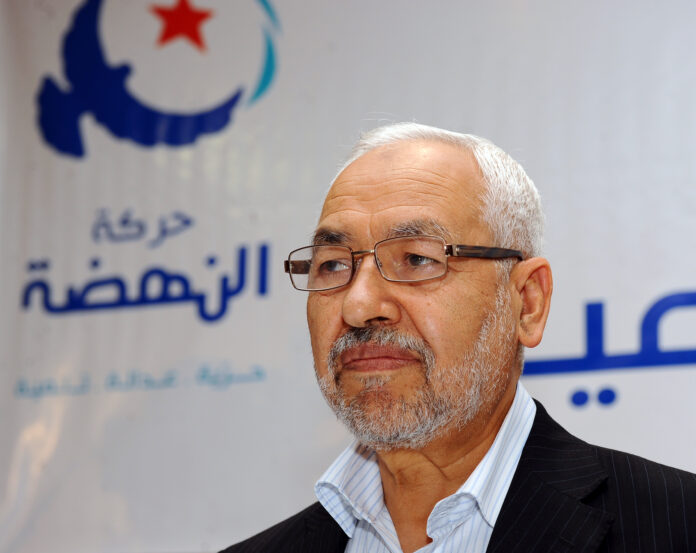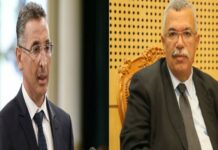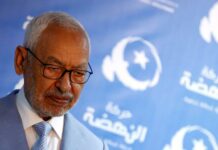In a statement issued by its executive office on October 21, Ennahda Movement considered that the exceptional measures taken by the head of state, Kais Saied, and the subsequent unconstitutional decisions “damaged Tunisia’s post-revolution gains and reputation.”
In this statement, the movement noted that these decisions “led to the isolation of the authority internally and internationally after July 25,” and “undermined the democratic experience,” adding that these decisions “are about to turn the country into a human rights situation at the international level,” according to its assessment.
In a statement from its executive office, Ennahda called for “the need to put an end to the exceptional situation that established the monopoly of authorities and refused to participate in finding solutions to the current political crisis, and to return to constitutional legitimacy.” It also called for “the necessity of resuming parliamentary activity in order to provide the legal conditions for the government, such as approving the state budget and the Finance Law, in accordance with the requirements of the law and the constitution.”
On September 22, President Kais Saied issued a presidential order (Order 117), relating to “new exceptional measures in relation to” continuing to suspend all the competencies of the Assembly of the Representatives of the People, continuing to lift the parliamentary immunity of all its members, and putting an end to all grants and privileges granted to the president and members of the Assembly of People’s Representatives”.
The head of state had previously suspended the powers of Parliament on the 25th of July, and then extended that procedure indefinitely about a month later.
In a context related to these decisions, the Ennahda movement denounced, in a statement by its executive office, “depriving the people’s representatives of their allocations…”, which it described as “unconstitutional” that prevents the representatives “from any right to work.” On the other hand, it called for an immediate end to this grievance over the representatives and the legislative authority and its structures.
On the other hand, Ennahda warned in its statement of “the danger of treachery and distortion speeches that affected many personalities and symbols of the democratic transition and the struggle against dictatorship for decades,” including the Speaker of the People’s Assembly and the President of the Ennahda Movement, Rached Ghannouchi, Moncef Marzouki, former President of the Republic, Najib Chebbi and others.
The movement also demanded the release of detained journalists and parliamentarians, out of respect for the principles of freedom of expression and the media. It also denounced what it said was a “media blackout” about the economic and financial situation in Tunisia, and the absence of data on the 2022 draft budget and the supplementary budget law for 2021, which, according to its assessment, constitutes “a blow to the right of citizens and media professionals to discuss various options and programs.”











